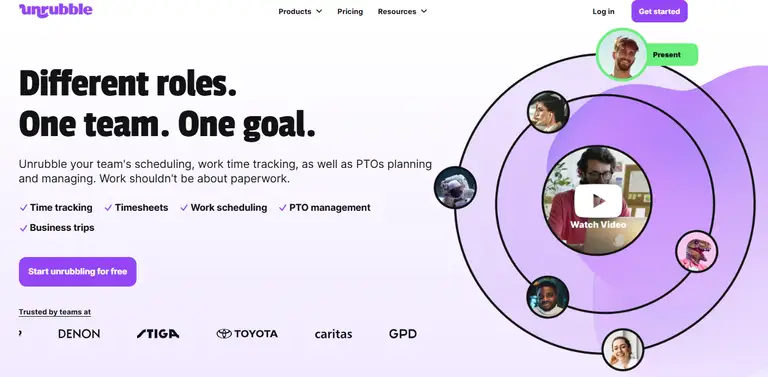Exit interviews are one of the most underrated tools in HR.
When handled well, they can unlock honest feedback from employees who are leaving and turn it into valuable insights for the company.
The right questions highlight opportunities to improve retention, strengthen company culture, and make life better for both current and future employees.
Nowadays, with employee turnover still a top concern for HR teams, asking the right questions has never mattered more.
Below you’ll find more than 80 exit interview questions across different categories.
Each one will help you gather insights directly from the departing employee and make your exit interview process a structured, meaningful conversation instead of a box-ticking exercise.
Exit interview
How did the exit interview process influence your decision to share honest feedback?
Would making exit interviews mandatory have made you more likely to share valuable insights?
From the employee's perspective, what could make the exit interview template feel like a more structured conversation rather than a formality?
Did you feel comfortable being open during this conversation? Why or why not?
How could we make the exit interview process more useful for both you and the company?
What advice would you give to someone else going through this interview?
What insights do you think leadership should take away from exit interviews like this?
What support would have made the exit interview more comfortable for you as an exiting employee?
What insights from your experience do you think leadership should hear most?
Company culture
How would you describe our workplace culture and team dynamics compared to your expectations during the recruitment process?
Did you feel that the company’s efforts supported a positive workplace environment and strong employee morale?
What changes to company culture could help current and future employees feel more engaged?
How well did our values match your personal values?
Did you feel included and respected in your team?
What one word would you use to describe our culture, and why?
How did our culture influence your decision to stay or leave?
Did you feel our culture supported a healthy work life balance?
How could our culture evolve to keep more employees from leaving?
Best exit interview questions
What made the biggest impact on your job satisfaction and overall satisfaction here?
What actionable insights should we take from your experience to improve retention and reduce employee turnover?
Did your job responsibilities match the original job descriptions you were given?
What could have been done differently to keep you here longer?
What part of your job made you the most proud?
Which moments here stand out as positive highlights for you?
What could we ask in future interviews that would lead to better employee feedback?
What questions would you suggest we add to better understand why employees leave?
What’s one question that would have made you reflect more honestly about your new job choice?
Conduct exit interviews
In your opinion, should managers or HR teams conduct exit interviews to get the most honest answers?
Do you think in person conversations or written forms work better for gathering candid feedback from former employees?
How can HR managers and department heads better use the offboarding process to provide feedback and gain candid feedback from leaving employees?
Would you have felt more comfortable if this interview was led by someone other than HR or your manager?
Would you have been more comfortable if this interview was anonymous?
Would it be useful for you if the company shared back what they learned from exit interviews?
When during your departure process would an exit interview have felt most useful to you?
Would a digital survey or live conversation help us gather insights more effectively?
What’s the best timing to conduct exit interviews after someone resigns?
Exit interview template
Were there any open-ended questions you found especially helpful to share constructive feedback?
Which areas, such as compensation package, benefits package, or management style, should always be covered in a structured conversation?
How can templates be designed to encourage employees to share honest answers instead of generic replies?
Would you have preferred being asked about both professional and personal aspects of the job, or only professional?
Would a shorter or longer interview feel more valuable to you?
Do you prefer multiple-choice questions, open questions, or a mix?
Which type of questions feel most helpful for you to answer - open, multiple-choice, or both?
Should the template ask about future plans, like your new job, or focus only on the past role?
Did any questions in this interview feel repetitive or unnecessary?
Employee morale
Did leadership and your direct manager contribute to employee morale in a positive way?
How did management effectiveness and leadership effectiveness affect your employee satisfaction?
What practices could hr teams adopt to encourage employees to leave on a positive note?
What helped you feel most motivated during your time here?
Were there moments when morale dropped significantly? What caused it?
How could leadership better recognize employee achievements?
How did work life balance affect your overall morale here?
Did leadership actions make a difference in helping employee retention?
What role did recognition or lack of recognition play in your morale before you became an exiting employee?
Employee experience
What part of your employee experience contributed most to your employee's decision to leave?
Did you feel you had enough development opportunities and necessary training to perform your job duties successfully?
How could the company improve the work environment to attract and keep top talent and even bring back boomerang employees?
What was your best experience working here?
What was your biggest frustration?
How would you describe the onboarding process when you first joined?
Did your experience here prepare you well for your new job?
How could we improve the employee experience to reduce future employee departures?
Did you feel comfortable giving employee feedback during your time here?
Constructive feedback
What constructive feedback would you share about the workplace environment or management style?
How could the offboarding process be improved to identify areas for continuous improvement?
From your time here, what actionable insights should we apply to make current employees more engaged?
If you could change one thing immediately about our workplace, what would it be?
What would you recommend to your manager for improving team collaboration?
What would you suggest to senior leadership to improve the company overall?
What constructive feedback can you share that would help HR teams gather insights about why employees leave?
What improvements to the work environment would you like your feedback today to influence?
What feedback would you give to improve employee retention in your department?
Development opportunities
Were you satisfied with the development opportunities and necessary training provided during your role?
How can the company improve career paths to better support current and future employees?
Do you think better growth plans could reduce employee departures and lower turnover rates?
Did you feel your career goals were supported here?
What training or skills do you wish had been available to you?
How did your manager discuss growth opportunities with you?
Did a lack of development opportunities play a role in your employee’s decision to leave?
How could more training or mentorship help improve employee retention?
Would different growth paths have convinced you to delay moving to your new job?
Also worth checking out: questions to preemptively answer on your new hire's first day
Over to you
Exit interviews should never feel like paperwork at the end of a contract. They’re a chance to learn and make meaningful changes that benefit everyone - from the exiting employee to the team they leave behind.
Thanks to using the right mix of questions, you can reduce turnover rates and build a workplace where people feel motivated to stay.
And if you want to go further, it’s not just about questions. It’s about systems, too. Tools like Unrubble can help you track attendance, manage scheduling, and keep an eye on employee morale before it becomes a reason to leave. With better data and smarter processes, you can spot issues earlier and act faster.
👉 Try Unrubble today and see how it can support your HR team in building a workplace where exit interviews become the exception, not the rule.









